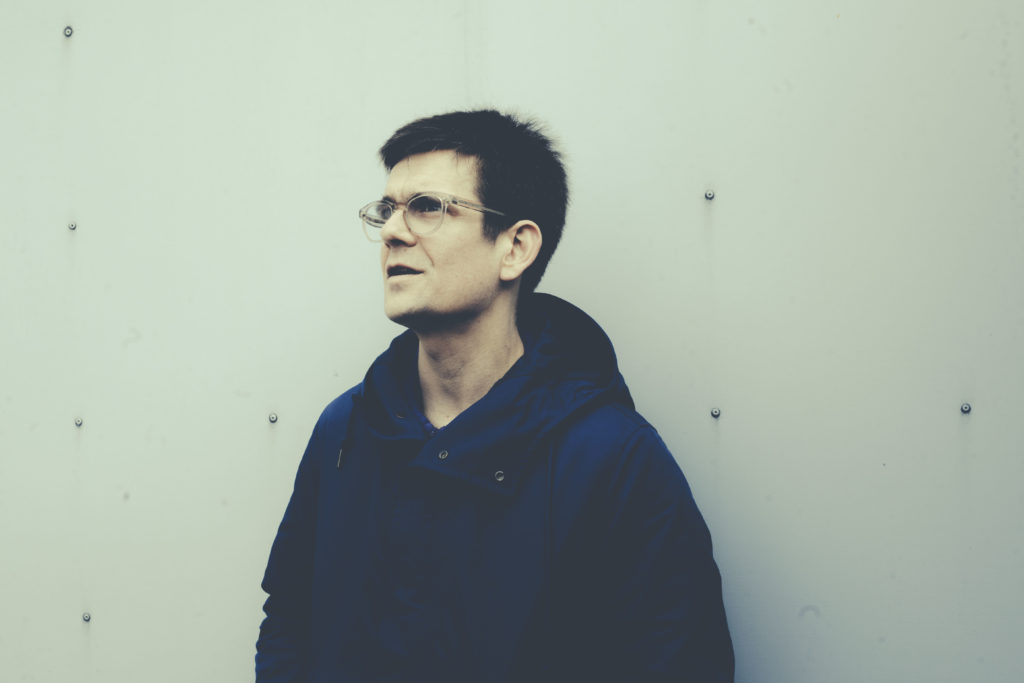
Ben Bertrand is a Belgian bass clarinetist and composer. With his instrument and countless machines, Ben creates his live sets with a hypnotic web of sounds. Listening to his music is like sitting at the sea, watching a slow motion of our crazy lives sailing by. With his works (Era/Area, Off-Record 2017 and NGC 1999, les albums Claus 2018), Ben has toured in Belgium, France and the Netherlands (Meakusma Festival, Ancienne Belgique, Le Lieu Unique, BRDCST Festival, Schiev Festival, Le Guess Who?, World Minimal Music Festival). His new album, Manes, was released in March in collaboration with Stroom and les albums claus.
You have a brand new release out. Can you talk about it?
This is my second solo release. I recorded it at les ateliers claus, an amazing concert space and studio in Brussels. It is released on Stroom in collaboration with les albums claus, the label of les ateliers claus. For this album, I got inspired by a lot of different types of music, such as Morton Feldman, Ligeti and Renaissance polyphony, among others. I tried to write a tribute to our ancestors. The Manes are the souls of ancestors, worshipped as benevolent spirits.
Was it meant like a requiem?
Not really. Requiem is more of a complaint. My thoughts were more about a certain gratefulness.
How did you compose the album?
I composed it with my bass clarinet, effect pedals and several loopers. On one hand, I analyzed how some composers composed their music and I used some of their techniques. On the other hand, I also looked for ways of playing my instrument that permit me to really interact with the effects pedals.
I compose my music with a stage performance in mind. Playing for an audience is really important to me.
Have you had any shows where things didn’t go the way you thought they would?
The unexpected happens all the time and you have to deal with it. But if you are well prepared, when you come on stage, anything can happen and you will react perfectly. It’s quite stressful sometimes, especially in big venues. So when I rehearse, I imagine myself going on stage. I soundcheck in my bedroom. I tell myself “I’m going on stage in 10 minutes. I’m fucking scared”. When I arrive at the moment of the gig itself, it’s a familiar feeling already, and I can manage it better.
Do you have stage fright?
For me, it’s more before doing the soundcheck. After the soundcheck, I’m confident. It’s as if you were a pilot, you do all the sequences – record the sound in this loop, use a certain effect, etc. If you are prepared the music can live on its own.
How does your day look like?
I have the routine of a classical musician: I work 2, 3 hours per day on classical and contemporary music and then 2, 3 hours on composition/improvisation. Music creation is my main occupation, but I also teach music at a school for blind teenagers.
There are actually not so many blind performers in this experimental, underground scene.
No. Actually, there are almost no blind people playing music on stage. My colleague who is a pianist is blind too. He knows like 5,000 pop songs. You just tell him which song you want to sing and he plays it. The kids at school often tell me I’m not fast enough. When I teach them, I give them a song, come back a week later and I sing the song again and they tell me: “Mr, that’s not OK, you’ve made a mistake. You didn’t begin on the right pitch.” They have the perfect pitch memory.
Photo: Julie Calbert
Interview by Lucia Udvardyova